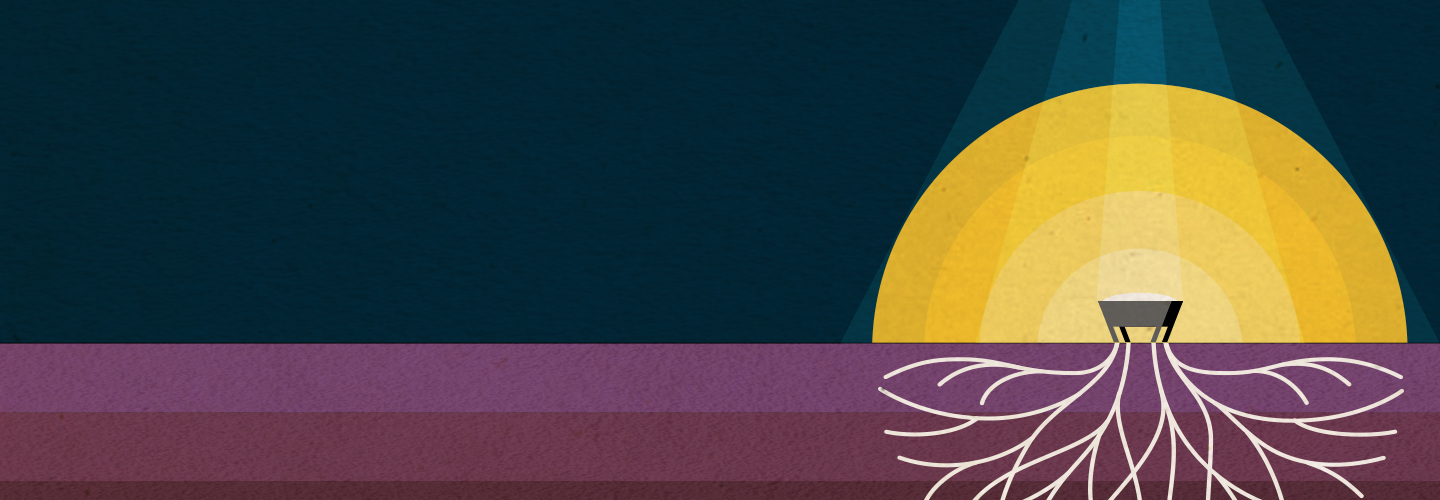Then God said, ‘Let us make mankind in our image, in our likeness, so that they may rule over the fish in the sea and the birds in the sky, over the livestock and all the wild animals, and over all the creatures that move along the ground.’ So God created mankind in his own image, in the image of God he created them; male and female he created them. Genesis 1:26–27
CONSIDER THIS
Have you ever wished you could step back into a moment in time, in your history or the history of the world, to observe what actually took place? I have many of those moments on my list of “must visits,” but only a few stand out and eclipse all the rest. This moment in time, sketched for us in words by Genesis 1:26–27, is one of those for me.
Humankind comes to life from the mud, the ground, of the earth. Breathed into being by the breath of the Mighty God, we walked in the garden of Eden as the vice-regents of creation. And as vice-regents, we were made to rule, lead, guide, steward, shepherd, and curate that creation—as God’s emissaries on the earth.
When the Son of God comes into the world, he comes as one of us—as an image-bearer whose mandate is to steward the creation and shepherd it to its fruition—to become what we know as the new creation. Eden became both our imagined memory and our hopeful vision of the future; for Jesus, Eden was his actual memory (he was there at its creation) and his clear vision of the bright future of humankind.
And that memory, that vision, led him. It led him to serve. To give. To share. To teach. To clarify what being made of clay and divine breath actually means to a sojourner walking with God this side of heaven. To die as an offering for all, and to rise again as the firstborn of all creation, Jesus set the vision in full, vibrant motion.
At the coming of God into the world, to take us by the hand and show us how human be-ing and be-coming is to be done, Jesus’ life, death, and resurrection became the vehicle by which the Father took care of all manner of human business. As the “truly human” being, Jesus will show us the path to belovedness and to loving others through Jesus. He will show us the reason for our love of one another, our love of fruitful work, our love of children’s laughter, and the taste of homemade bread. Jesus will show us the way to be human.
The early church father Bishop Irenaeus of Lyons said, “The glory of God is a human being, fully alive.” Jesus will show us the way to live life to its very fullest, in the presence of the Father and in the presence of other image-bearers. Jesus will show us, in his Advent, the path from mud to glory. From him, we will learn to become who we were designed to be: God’s breath in our lungs and God’s light filling our hearts.
THE PRAYER
Emmanuel, today we are living in a story that did not begin with us, but sweeps us up in its narrative. We surrender again to being a beloved child who is here for a purpose, with a calling, with a destiny. Forgive us for seeing our lives as anything less than a mysterious miracle, and your life lived, given, and ushering in new creation life for us all as anything less than the story we now call our own. In Jesus’ Name, Amen.
THE QUESTION
• It is fair to say that most of us forget that we are miracles, and that we often forget that central to Jesus’ mission was to remind God’s children of that fact. Using the word “miracle” in your sentence, how would you describe who you are and what the Father loves about you?
Roots: Advent and the Family Story of Jesus by Dan Wilt


